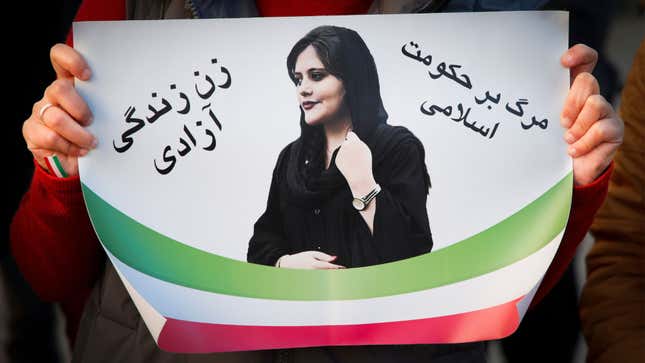1,200 Students in Iran Experienced Mysterious Food Poisoning the Night Before Mass Protests
Authorities blamed the incident on "water-born bacteria,” but Iran’s national student union believes universities intentionally thwarted their protest plans.
EntertainmentEntertainment

On Thursday, the evening before multiple Iranian universities were set to participate in more mass protests against the country’s oppressive regime, approximately 1,200 students were struck with severe food poisoning. According to a Telegram post by Iran’s national student union, victims of the “chain poisoning” suffered from “body pain, diarrhea, and vomiting,” causing hallucinations for some and hospitalization for many. A majority of those affected were students of Kharazmi University and Arak University of Technology, with similar reports coming out of at least four other universities, the New York Post reports.
Officials from the Iranian science ministry quickly linked the food poisoning to water-born bacteria, but the student union believes the poisonings were an intentional attempt to derail their participation in the protests. “Our past experiences of similar incidents at the Isfahan University negates the authorities’ reason for this mass food poisoning,” the union wrote on Telegram.
-

-

-

-

-

-

-

-

-

-

-

-

-

-

-

-

-

-

-

-

-

-

-

-

-

-

-

-

-

-

-

-

-

-

-

-

-

-

-

-








































